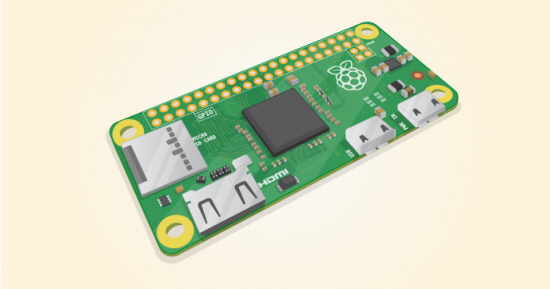If you’ve been visiting FOSS Force for a while, you might have noticed some changes around here. Nothing serious. We didn’t do anything drastic like change our layout or put our content up in twenty page slide shows or anything like that. But we’ve expanded, and I think, improved our content. We’re offering more coverage of FOSS than ever before, while also expanding into territories of free tech that lie outside the arena of software and Linux.
 You might have also noticed that the expansion began just after our May fundraising campaign in which you gave us $2,300 to improve our site. Thanks to you, we have been able to pay our writers — not much mind you, truthfully a small fraction of what they should be paid — which has been a key element to our improved coverage.
You might have also noticed that the expansion began just after our May fundraising campaign in which you gave us $2,300 to improve our site. Thanks to you, we have been able to pay our writers — not much mind you, truthfully a small fraction of what they should be paid — which has been a key element to our improved coverage.
Christine Hall has been a journalist since 1971. In 2001, she began writing a weekly consumer computer column and started covering Linux and FOSS in 2002 after making the switch to GNU/Linux. Follow her on Twitter: @BrideOfLinux


 There was a time, back when FOSS Force was young, when we called the weekly round-up Friday FOSS Week in Review. Sometimes we’d get so far behind in our work that the Friday column wouldn’t get published until Saturday, sometimes late in the afternoon. To solve the problem that caused with the column’s title, we pulled a page from an old ABC playbook, from when they owned the Monday Night Football franchise, and called these late roundups “Friday FOSS Week in Review — Special Saturday Edition.” We didn’t change the header, but always made the “Saturday edition” mention in the text of the column, just as if it was the most natural thing in the world.
There was a time, back when FOSS Force was young, when we called the weekly round-up Friday FOSS Week in Review. Sometimes we’d get so far behind in our work that the Friday column wouldn’t get published until Saturday, sometimes late in the afternoon. To solve the problem that caused with the column’s title, we pulled a page from an old ABC playbook, from when they owned the Monday Night Football franchise, and called these late roundups “Friday FOSS Week in Review — Special Saturday Edition.” We didn’t change the header, but always made the “Saturday edition” mention in the text of the column, just as if it was the most natural thing in the world.
 It’s almost Christmas, which means that the day isn’t far off when ol’ Father Time rolls the odometer over yet again. This, of course, is the time of year when news writers like to publish lists, partly because they’re easier to write than real news stories. It’s not that we’re lazy, mind you, we’re just too busy shopping and decorating and drinking egg nog…especially drinking egg nog. We love drinking egg nog.
It’s almost Christmas, which means that the day isn’t far off when ol’ Father Time rolls the odometer over yet again. This, of course, is the time of year when news writers like to publish lists, partly because they’re easier to write than real news stories. It’s not that we’re lazy, mind you, we’re just too busy shopping and decorating and drinking egg nog…especially drinking egg nog. We love drinking egg nog.
 When all browsers are on board, it’s certain that high traffic websites will adopt WebP as their graphics format of choice. Google is already converting most if not all graphics uploaded to Google+ to WebP to deliver to browsers supporting the format.
When all browsers are on board, it’s certain that high traffic websites will adopt WebP as their graphics format of choice. Google is already converting most if not all graphics uploaded to Google+ to WebP to deliver to browsers supporting the format.
 We were just as surprised here at FOSS Force, and Larry Cafiero
We were just as surprised here at FOSS Force, and Larry Cafiero 
 Except for those using a free version of Android such as
Except for those using a free version of Android such as  Mozilla wants to shed itself of Thunderbird, its popular cross platform email client. Although widely used on GNU/Linux, OS X and on Windows, the organization now seems to pretty much view it as a liability.
Mozilla wants to shed itself of Thunderbird, its popular cross platform email client. Although widely used on GNU/Linux, OS X and on Windows, the organization now seems to pretty much view it as a liability.